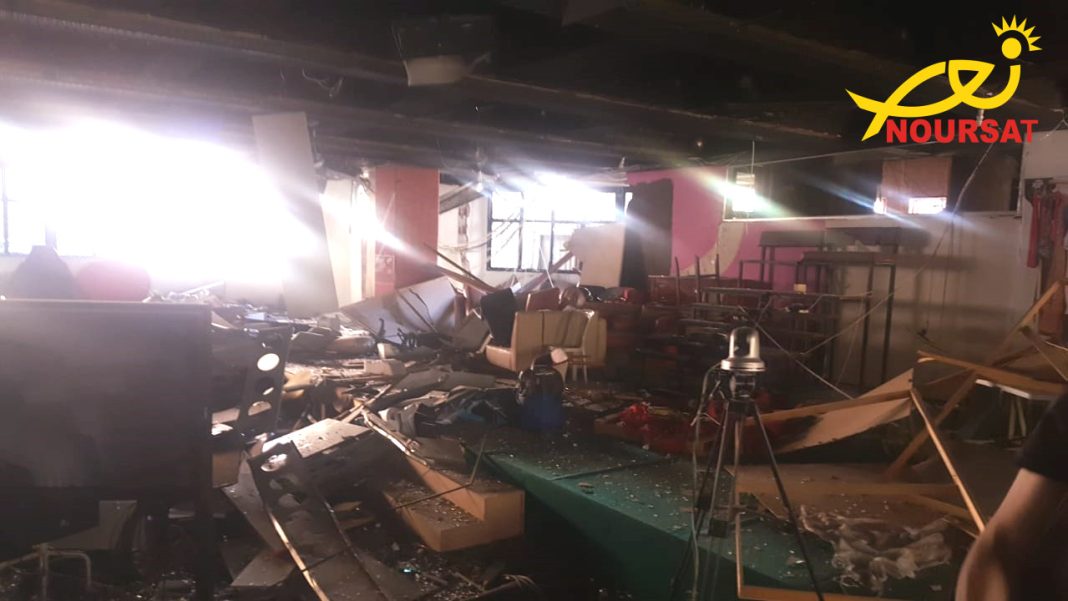The year 2020 has been a challenging year in all aspects in the small Mediterranean country of Lebanon. Home to 18 different religious communities and sects, Lebanon has been considered a model of coexistence and pluralism. Now the country which was supposed to be celebrating its centennial is facing its worst economic and humanitarian crisis, threatening its existence and unique identity.
The culmination of various catastrophes was the Beirut Port explosion on the 4 August 2020, in what was estimated to be one of the most powerful non-nuclear explosions in history. It left more than 200 dead, more than 6,500 wounded, and over 300,000 homeless. The explosion hit most of the Christian neighbourhoods, where historical churches, hospitals, schools and many other industries and homes were destroyed.
The media industry in the surrounding area was hit, according to reports by the Lebanese army and the relief foundations. In one report, “Mapping the Damage on the Media Sector”[1] , Tele Lumiere-Noursat Christian Network, was one of the “Extremely Damaged “ media outlets.
The channel had been working on developing its facility for years in the Mar Michael (St Michael) region near the port of Beirut. The blast devastated ten of its studios where a dozen of the prime-time programs were broadcast live on air on a daily basis or recorded. The damages ranged from structural to material (such as equipment and sets), and were estimated to be more than two million US dollars, according to Jacques El Kallassi, the General Manager of Tele Lumiere, based on a detailed report estimating the damages[2].
The offices and production sections in the nearby Dora region were also damaged. Miraculously none of the employees was severely wounded.
In its urgent response to the catastrophe, the already struggling network, remarkably shifted its programs to one of the smallest “primitive” studios in the Dora region. There it focused mainly on using its airtime to create a humanitarian relief chain by connecting the affected persons to NGOs, associations and generous families willing to help them in their time of crisis. From August 4 until October 4, 2020, the channel dedicated its air time to the victims, the wounded, the homeless and all the affected people of Beirut. Hours of broadcast included live coverage from the affected area, where masses, prayers, and religious concerts were held. Reporters from the channel followed stories of the victims in an effort to provide some help by covering relief efforts and the humanitarian situation.
The Catholic media lived up to its mission in the time of crisis: to be the voice of the voiceless, to look past its wounds and look forward to be of service and fulfil its goals.
Still, the future doesn’t seem so promising, especially as Christians struggling in the Middle East. After more than two months, according to General Manager Jacques El Kallassi, “Tele Lumiere is still suffering from the destruction, in its offices and its studios, currently renting material and filming outdoors to keep on the production of programs, and is launching an appeal for help in programs, equipment or financial support.”
Tele Lumiere’s mission now is even more important. Te presence of this Catholic network is the light in the darkness of this ongoing crisis: the most important role to play now is to sow peace, hope and faith, amidst all the disaster and sufering.
Marie-Terese Kreidy
Tele Lumiere-Noursat
This article is available in SIGNIS Media. Is peace on earth possible?


